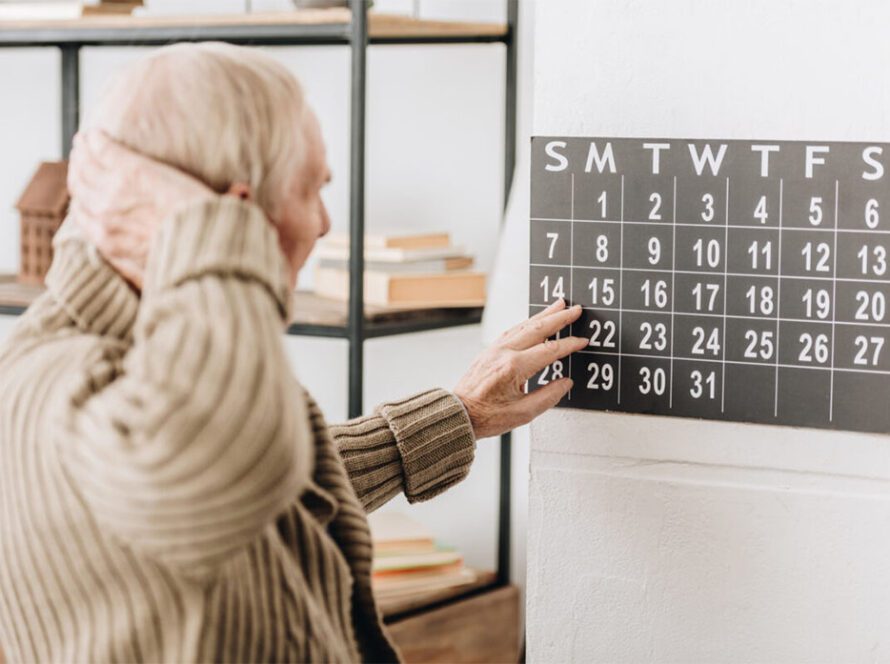“You’re stealing my things – I just know it!”
It’s very common for a person living with dementia to become suspicious of those around them. They may accusing others of stealing or hiding valued items. They may accuse a spouse or caregiver of infidelity or being a spy – leaving those who love them shaking their heads and unsure what to do next. Someone with dementia may also hallucinate – see things or people that are not there.
Why do delusions and suspicious behaviors occur?
A delusion is a false belief or judgment about external reality, held despite firm evidence to the contrary – essentially firmly held beliefs in things that are not real. This can happen in any stage of dementia, but is most common in middle- to late-stage of the disease. There are many things that can contribute to the cause. Someone with dementia typically experiences memory loss and confusion. They often struggle to remember people, things, places and their own personal history. They may be confused about the day, week, month, or even season. They may be unsure of where they are living and why. This can cause tremendous anxiety and suspicion of what they are being told. Someone living with dementia often misplaces items and is unable to retrace their steps to where they last left the item, and therefore assumes the item was stolen.
It is important to remember – as in all dementia behaviors – that the behavior is a result of the disease process and is an expression of distress or an unmet need. It’s also important to remember, in any delusion, that although the delusion may not be true, it is extremely true to the individual – and we want to respond in a way that builds trust.
How to respond
Take a moment to center yourself. This is especially true if you are the one under suspicion or being accused. Take a deep breath and remember that this is not personal, it is a result of damage to the brain and don’t take offense.
Listen to what the person is saying, and try to understand their reality. Remember, the situation is very real to them.
Validate their feelings. Express how sorry you are that this is happening to them and you know how difficult it must be. Reassure them that you care and you are there to help.
Don’t argue, correct, or try to reason with the individual. That will only create more stress for everyone involved.
Offer a simple solution. Offer to walk with the individual and assist in finding the lost item. It can often be helpful to mirror the individual’s feelings and statements in words and actions. Imagine if your purse or cell phone were lost, how distressed would you feel? You would want whoever you told to validate you and help take action vs simply trying to distract you.
When appropriate, try to redirect the person to another activity. Once you have validated the individual and they are calmer, try to shift their focus to an upcoming event, a hobby they enjoy, a warm beverage or snack – or ask for their help with something.
Have extras of commonly “lost” items. If the person is frequently misplacing a certain item, have multiples on hand. For example, if the person is always misplacing their purse, purchase two identical purses so you can quickly resolve the situation.
Share solutions with the team. If you find a redirection or solution that works, share it with all family members and caregivers and update the person’s care plan. This will create consistency and calm for the individual.
See the doctor. If a person with dementia is having severe delusions and there is a concern of harm to themselves, their family member or caregiver, or if the delusion is extremely troubling to the person and the distress cannot be redirected or managed, it’s important to have an evaluation to determine if medication is needed, or if a current medication needs to be changed.
While antipsychotic medications can be effective in some situations, they are also associated with an increased risk of stroke and death in seniors with dementia and must be used with caution. A non-pharmacological, person-centered approach is always the first option in behavior management.
Finally, build a support team and create community. The journey of loving and caring for someone with dementia can be very challenging and you don’t want to go through it alone. Explore support groups in your area, or virtual options and connect with others who can understand firsthand what you are going through and can offer encouragement and support.


